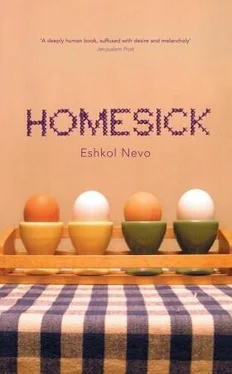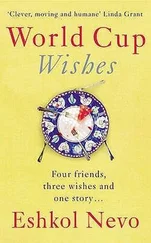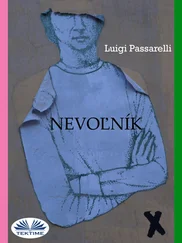Eshkol Nevo - Homesick
Здесь есть возможность читать онлайн «Eshkol Nevo - Homesick» весь текст электронной книги совершенно бесплатно (целиком полную версию без сокращений). В некоторых случаях можно слушать аудио, скачать через торрент в формате fb2 и присутствует краткое содержание. Год выпуска: 0101, ISBN: 0101, Издательство: Random House, Жанр: Современная проза, на английском языке. Описание произведения, (предисловие) а так же отзывы посетителей доступны на портале библиотеки ЛибКат.
- Название:Homesick
- Автор:
- Издательство:Random House
- Жанр:
- Год:0101
- ISBN:9781448180370
- Рейтинг книги:5 / 5. Голосов: 1
-
Избранное:Добавить в избранное
- Отзывы:
-
Ваша оценка:
- 100
- 1
- 2
- 3
- 4
- 5
Homesick: краткое содержание, описание и аннотация
Предлагаем к чтению аннотацию, описание, краткое содержание или предисловие (зависит от того, что написал сам автор книги «Homesick»). Если вы не нашли необходимую информацию о книге — напишите в комментариях, мы постараемся отыскать её.
Homesick
Homesick — читать онлайн бесплатно полную книгу (весь текст) целиком
Ниже представлен текст книги, разбитый по страницам. Система сохранения места последней прочитанной страницы, позволяет с удобством читать онлайн бесплатно книгу «Homesick», без необходимости каждый раз заново искать на чём Вы остановились. Поставьте закладку, и сможете в любой момент перейти на страницу, на которой закончили чтение.
Интервал:
Закладка:
What?! Moshe and I asked at the same time.
That Arab, Noa said. Madmoni’s worker. The one who tore Gina’s bags. He knocked on the door and wanted to know where the old man and woman who live upstairs were, why they’re not at home. I asked him what he wanted with them. He said he needed something from the house.
That’s it, Moshe said, I’m going over to talk to Madmoni right now. What does he mean, he needs something from the house? It’s his house all of a sudden?
Really, he looks pretty pathetic, Noa said, trying to calm him down. He’s an old man.
Pathetic my foot, Moshe said and put his coat on again. I don’t want him here hanging around the children.
*
Amir already knows how it’ll end. One day, when he takes his eyes off the road to fiddle with the radio, he’ll swerve right into an oncoming truck. And smash. That’ll be it. Over in a flash. The radio will stop on the classical music station and the sounds of a requiem will fill the air. An ambulance siren will blare. Traffic will pile up in the opposite lane because of drivers slowing down to stare.
He’s already been saved from similar scenarios at the last minute. He’s managed to pull the wheel to the right or the left. And prevent disaster. But he knows it doesn’t matter. He can follow all the safety rules and drive slowly all the way: in the end, it’ll happen anyway. He can see the headline in his imagination: ‘Died Trying to Change the Radio Station’, or ‘Musical Death’ (if the editor doesn’t have enough space). Yes, it’s no use fighting it. It’s a lost cause. Even if they send him to Gaza on reserve duty, even if he gets a disease that has no cure. It’ll end because of music. That’s certain.
(And, he thinks, there’ll be a circular justice to it, because music is what saved his life twice in the past. Well, saved his life is a slight exaggeration, but whenever his spirits had sunk as low as they could go, in basic training, for example, he grabbed on to a song that was being played on the radio at the time, or a tape that Modi had edited for his twentieth birthday, and let the sounds flow through him, to start the countdown from the beginning again, to remind him that he didn’t have to be so sad, that not everything in his life was bad, not everything was black.)
As for Noa, she’d already visited the cold side. And come back.
When she was sixteen, she’d had enough and taken almost a whole bottle of Advil. And thought: a few minutes of nausea, and I won’t have to suffer any more. I’ll just lie down and die. And thought: Mum won’t cry. Not even when she finds me dead in my bed. And her conscience? Half a pang at best. And her dad? I wonder how many days it’ll take before he’s out the door. Two? Three? No more than four. And the people at her school. For two years, they’ve been acting as if she isn’t even there. They think she’s weird. She dances like a boy, philosophises about everything. And the whole world — evil at its core. Hopeless. Corrupt. Why live in such a world any more? A world without love.
In the end, her stomach was pumped. The doctor agreed not to put ‘suicide attempt’ on her file so the army would take her (funny, he thought he was doing her a favour). Her parents sent her and themselves to the most expensive psychologist they could find. And agreed that it would be best not to let the story get around. People wouldn’t understand, and they might put a label on her. They’d have to waste energy on an explanation instead of dealing with the real situation.
Even six months later, no one could define the real issues. They formulated a few rules. Made promises. Her mother surprised her by wetting a few tissues. Then they bought the psychologist a plant, a farewell gift, and spoke about the subject as infrequently as they could. Her parents went back to their comfortable routine. Suddenly, without a word of complaint, they had enough money to buy her materials and she started to paint. She splattered the canvas with all the colours bubbling inside her.
For hours, she’d sit in front of her easel, dipping her brush, drawing a line, losing her sense of time. There was always another painting to finish. Another painting to start. Another reason to leave the Advil bottle in the bathroom and focus on her art. Meanwhile, the boys in her class started showing an interest. Her beauty, which was beginning to show, saved her from loneliness. Her eyes looked straight ahead into other eyes. Her dresses got shorter and shorter, showing her thighs. In no time at all, she didn’t have to hide behind trees at breaktime. In no time at all, the boys were showing off for her every day. Pimply-faced teenagers hanging on every word she had to say.
Of course, she didn’t tell anyone what she’d done. She preferred to pretend the Advil night had never happened. If she could keep up the pretence that life was great, maybe she’d really start feeling that way before it was too late.
(It wasn’t until years later, when she and Amir were lying on top of the blanket in a rented bungalow, that she suddenly had a feeling that made her happy and frightened at the same time. She had to be totally open with him, he had to know. So she said: there’s something else I haven’t told you. And he said: so you’re really a man who had a sex change operation that really worked? She laughed and said, don’t be an idiot. Not that kind of something. She moved closer to him so she could whisper the rest. And spoke the words. Straight into his chest.
*
Rami the contractor said that if I show my face around there one more time, I can forget about all the money coming to me, even though he likes me and even though I’m his best worker. I don’t know what your story is, he said, but it has to stop, tifham ? Rami likes to mix Arabic words into his speech, ya’ani , to show that he’s an ordinary guy. And no one corrects him, even though he makes a lot of mistakes every time he opens his mouth. OK, I told him. You have nothing to worry about, Rami. You won’t hear any more complaints. Anyway, I said to myself, the old man’s in the hospital and the old lady’s with him, and I don’t want to sneak into the house like a thief. I want to walk in and say: hello, the land you’re living on is mine. Your cooking, your fighting, your lovemaking — you do it all on my land, fahmin ?
Ever since my mother said that the house I saw was ours, everything that used to be has come back to me. Not shwaya shwaya , not slowly, but all at once, as if a wall fell down in my mind and let everything in. All of a sudden, I remember the house where our neighbour, Salman el-Sa’adi, lived. His door was always half open, at night too, and he kept chickens in his yard. On very windy days, chicken feathers would fly over to our place and a brown feather would come in through the window and drift slowly on to the floor. I also remember his son, Wasim, who was the first friend I ever had. We used to climb trees and chase each other and have fist-fights, and after every fight my mother would lock me in the house, ya’ani to punish me, but only for a day, and then we’d go back to running around together and playing marbles and looking for ants’ nests so we could block them up with stones and see what the ants would do.
I also remember the day everyone ran away. I’d forgotten that day for almost fifty years. Maybe it was too painful to remember. How Mama put all our belongings into two big sacks — clothes and small pots, and some rice and olive oil — and sent me to Salman el-Sa’adi to ask if they had something that we could carry water in and I ran through the field and tripped on a stone and my knee bled, but I still kept running. Everyone around me was running, loading things on donkeys, swearing at each other, pointing to the hills. That’s where el-yehud , the Jew, would come from, they said. From there. I looked at the hills but didn’t see anything but the sun setting, and I kept on running till I got to their house, and Wasim’s mother gave me a big leather pouch covered in fox hair and said, give this to your mother, may Allah protect her, and on the way back — my knee was still bleeding — Kamel, who drew the water for the village, grabbed my hand, stuck his fingernails into my flesh and yelled at me, lawen , where to, where are you running to? Anyone who leaves his land has no life, no life. Halas, ya Kamel, leave the boy alone, someone who was tying a mattress on a donkey yelled at him, and Kamel swore and let me go. I ran all the way home, sure that my mother would be happy that I’d brought her a container for water, and she’d be proud that I kept running even though I was bleeding, but when I came in, she didn’t look at me. She was busy with Marwan, my brother, who was crying, why aren’t you taking my football? It’s all right, she told him, we’ll come back in two weeks and your ball will be waiting for you here. No it won’t, inti cazab , you’re lying! he said and kept on crying. Then my father went over and slapped him hard and said uskut , shut up, ya walad , you baby. That was when I started to understand that something serious was going on, that this wasn’t a game. My father never hit us. He was a quiet, shy man, and if he slapped Marwan, then something important was happening. Keep an eye on your little brother, my mother said, and pointed to Marwan, whose cheek was still burning from the slap, and go and pick some figs we can eat on the way. I took Marwan by the hand and we got small a bag. I climbed on to a branch and handed him a fig, then another fig, and he ate one and put one into the bag, ate one and put one into the bag, and we didn’t go home until the whole bag was full.
Читать дальшеИнтервал:
Закладка:
Похожие книги на «Homesick»
Представляем Вашему вниманию похожие книги на «Homesick» списком для выбора. Мы отобрали схожую по названию и смыслу литературу в надежде предоставить читателям больше вариантов отыскать новые, интересные, ещё непрочитанные произведения.
Обсуждение, отзывы о книге «Homesick» и просто собственные мнения читателей. Оставьте ваши комментарии, напишите, что Вы думаете о произведении, его смысле или главных героях. Укажите что конкретно понравилось, а что нет, и почему Вы так считаете.












